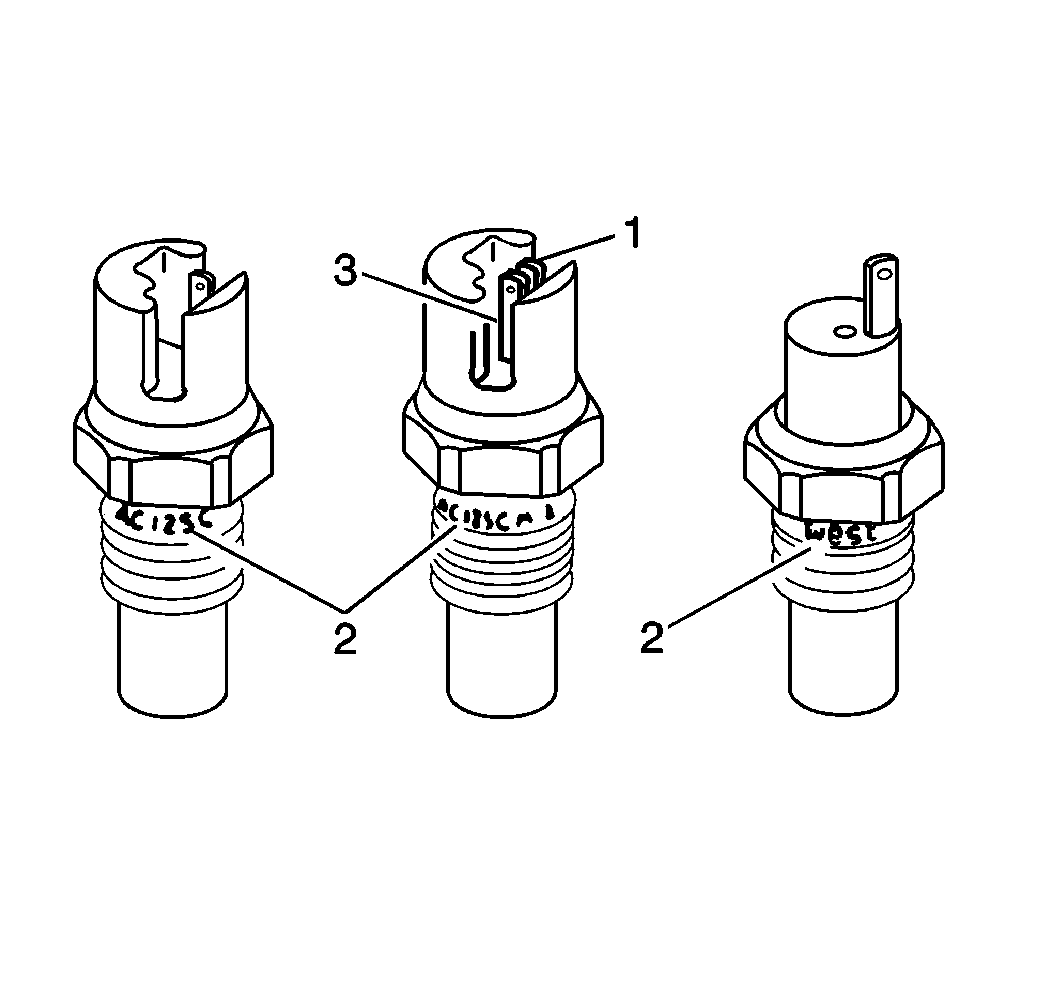The cooling system maintains an efficient engine temperature level during all engine operating conditions.
The cooling system consists of the following components:
| • | A radiator |
| • | A radiator surge tank |
| • | An electric engine cooling fan |
| • | A thermostat and housing |
| • | A coolant pump |
The coolant pump draws coolant from the radiator and circulates the coolant through coolant jackets in the engine cylinder block and the cylinder heads. The coolant is then directed back to the radiator.
The system directs some coolant through hoses to the heater core in order to provide for defrost and passenger compartment heat. A surge tank connects to the radiator to recover coolant displaced by expansion from high temperatures, and to maintain the correct coolant level. As the coolant cools and contracts, vacuum draws the coolant back into the radiator. Pressurized coolant continuously flows through the surge tank.
Temperature Indicator

This switch activates a warning lamp in the Driver Information Center (DIC) if the engine overheats. With optional instrumentation, a temperature gauge replaces the warning lamp. A transducer drives the temperature gauge. You cannot service the engine coolant temperature sensor. If the sensor is faulty, replace the sensor. Refer to Electrical Diagnosis for diagnosis and the location of the temperature switch.
A typical temperature light switch has calibration temperatures of 125 or 258 degrees (2) stamped on the switch. These switches have a brass switch terminal (1) and a silver sender terminal (3).
Low Coolant Switch
This vehicle has a low coolant warning switch. This switch is in the radiator surge tank. Refer to Electrical Diagnosis for diagnosis.
Deflectors, Seals and Side Air Baffles
Air deflectors are used on various models to direct air to the condenser fan radiator module. Air seals are used on various models to ensure that air passes through the radiator,and the A/C condenser, rather than bypassing the radiator. Air baffles are installed on various models to direct air into the radiator or the A/C condenser. A missing, damaged, or incorrectly installed baffle may cause the engine to overheat.
Engine Coolant
This vehicle has a newly developed engine coolant. GM Goodwrench DEX-COOL™ was developed to last for 240 000 km (150,000 mi) or 5 years, whichever occurs first. Follow the instructions in Draining/Filling Cooling System. Make sure only GM Goodwrench DEX-COOL™ (orange-colored, silicate-free) is used when coolant is added or changed.
A 50/50 mixture of ethylene glycol (GM Goodwrench DEX-COOL™) and water will provide the following protection:
Notice: Pure coolant can be added to raise the boiling point of the coolant, but too much will affect the freezing point. Do not use a solution stronger than 70 percent, as the freeze level rises rapidly after this point. Pure coolant will freeze at -22°C (-8°F).
| • | Give freezing protection down to -37°C (-34°F). |
| • | Give boiling protection up to 129°C (260°F). |
| • | Protect against rust and corrosion. |
| • | Help keep the proper engine temperature. |
| • | Let the warning lights and gauges work correctly. |
